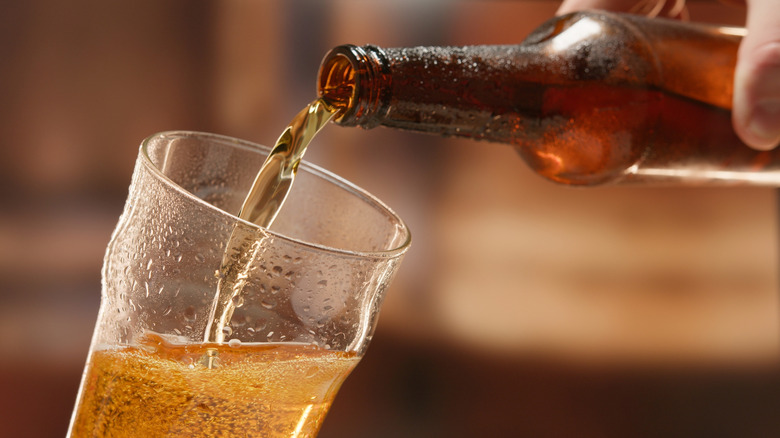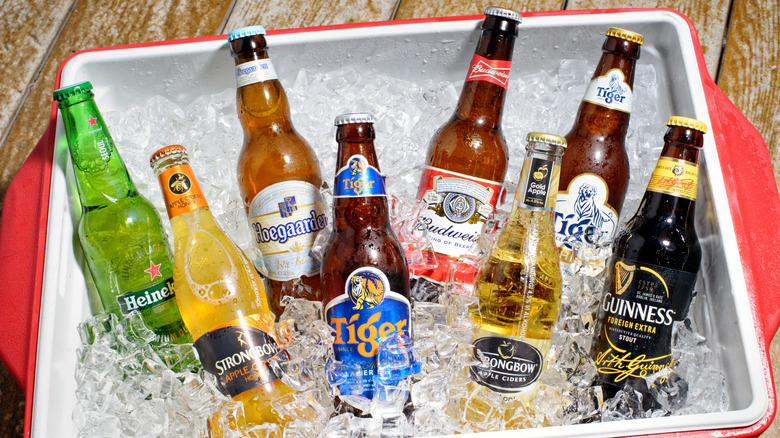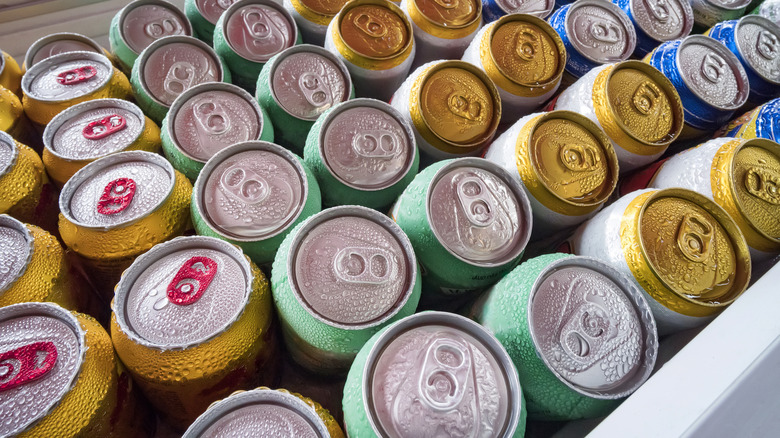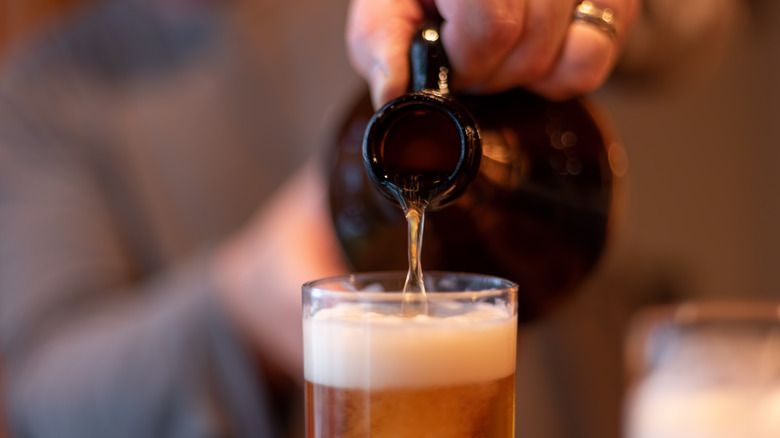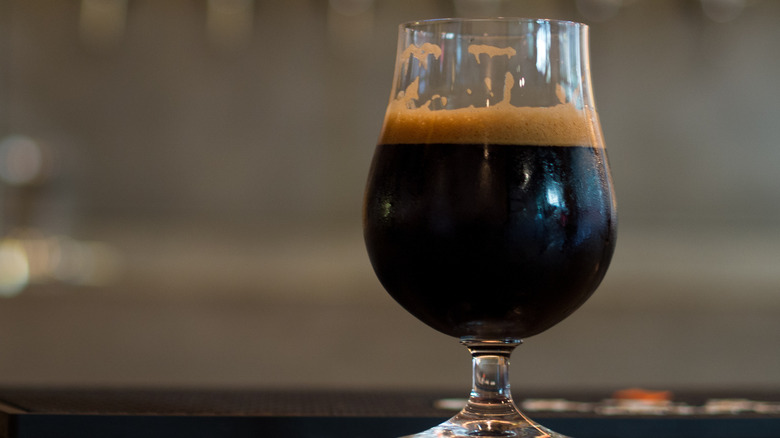Does Beer Expire?: How Long Bottles, Cans, And Growlers Last
We get a lot of PR samples here at The Takeout. Some are good (giant boxes of Ring Pops) and some are bad (foul-smelling laxative teas). Generally, beer shipments fall into the former category, though I've certainly received my share of weirdo stouts. Those weirdo stouts tend to migrate toward the back of my fridge, especially when brewers send two or three cans of the same brew.
Here's the question: how long can I keep these cans around before the beer loses its mojo? And does that rule apply to bottles, growlers, and crowlers?
How long does bottled beer last?
While beer doesn't technically expire, old beer does undergo oxidation. The oxygen inside your bottles and cans changes the character of the beer after a time, dissipating the hoppiness and giving the beer an unpleasant stale flavor.
So, how long does bottled beer last? Homebrewing resource Bison Brew reports that most bottled beers will stay fresh for up to six months in the fridge, but may undergo unpleasant oxidation as little as three months after bottling if left at room temperature. This is especially true if your beer is exposed to light, which can quickly skunk a beer.
How long does canned beer last?
Per Bison Brew, cans provide the best protection against both oxygen and light, the two factors that accelerate beer spoilage. Bison Brew recommends consuming canned beer within six months if stored cold; however, Renegade Brewing suggests that canned beer can last up to a year in the fridge.
I know for a fact that I've consumed a beer that's been sitting around for seven or eight months, and it tasted just fine. However, if you're springing for something really special, fresher is always better.
How long do growlers and crowlers last?
Don't be fooled by the fact that a crowler is essentially a giant can. Unlike cans and bottles, breweries fill growlers and crowlers from the tap, and the beer is meant to be consumed fresh — like, the weekend you pick it up from the brewery. Why? When the beer is placed in a growler or crowler, it's exposed to a lot of oxygen along the way. That speeds up the beer's degradation, which is why it's best to drink these bad boys in the first 36 hours.
The exception: Sours, wilds, and imperials
Bison Brew does note that stronger beers, like imperial stouts and barleywines, have a longer shelf life than, say, Belgian wheats. You can age strong beers at home if you'd like to experience the richer flavors they'll pick up over time. Sour and wild beers will also evolve over time because of their unique bacterial components. But don't expect the same results from a two-year-old sixer of Corona.
